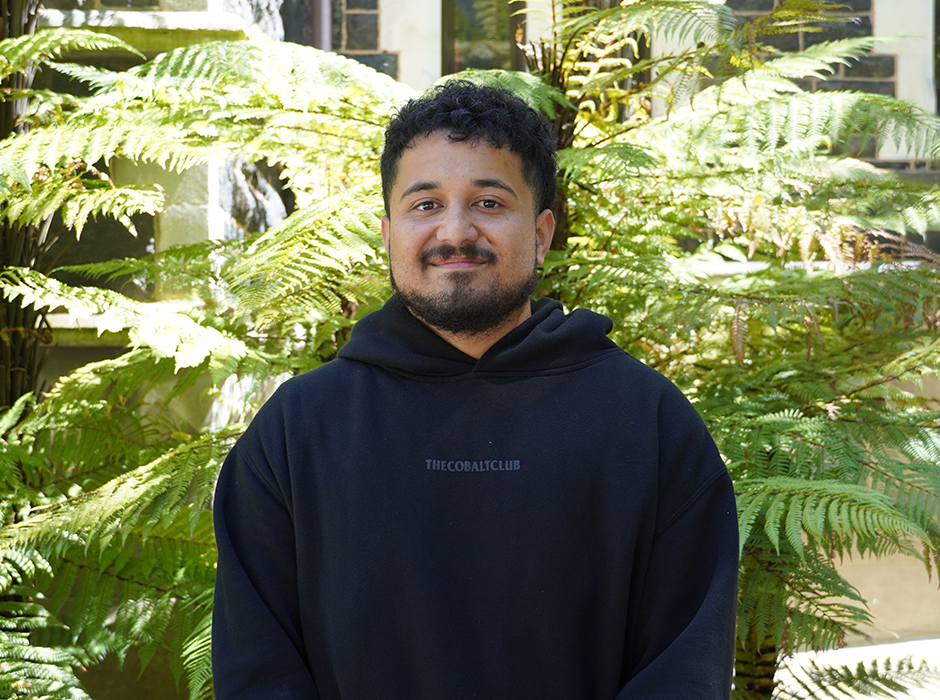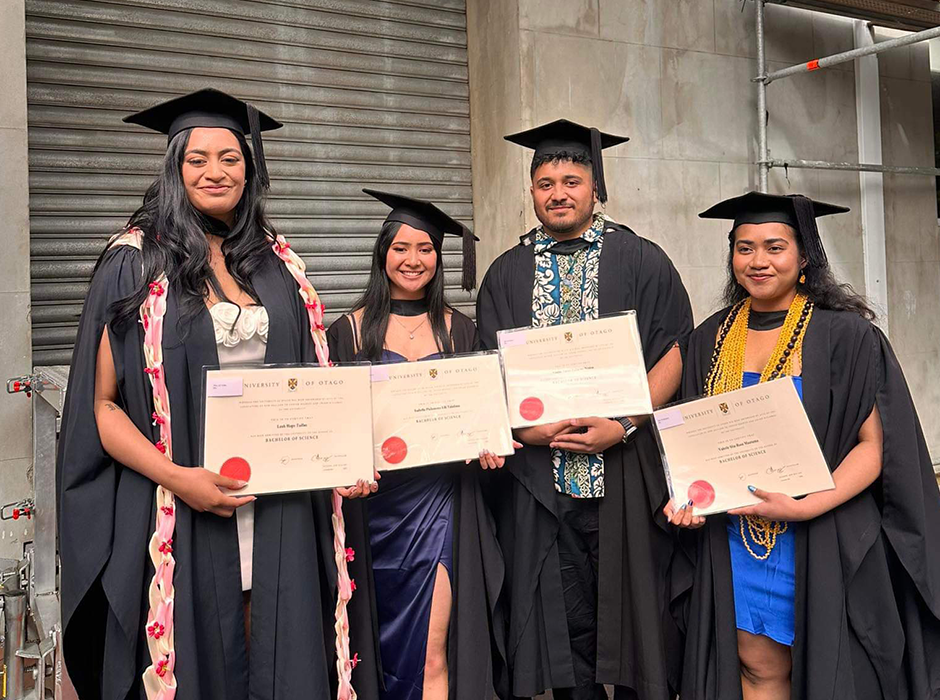
Vito Niuloa has been a mentor for the Pacific Opportunities Programme at Otago, served on the Otago Samoan Students’ Association executive and tutored psychology papers at the Pacific Islands Centre.
A recent Samoan and Niuean Psychology graduate proves he’s one to watch after designing a Pacific research project focusing on the importance of interpersonal connection.
Vitolio (Vito) Niuloa investigated the influence of ‘vā’ on the mood of Māori and Pacific peoples as part of his project for psychology paper PSYC310, allowing students the opportunity to conduct independent research that coincides with expertise within the Psychology department.
Vā is a concept that refers to spatial and relational space centring around the formation and maintenance of meaningful relationships with people and the environment.
“My understanding of vā is creating a safe space with one or many others that allow us to build meaningful connections,” Vito says.
“Vā is the understanding that when you’re in a space with one another, there is that connection there, and the space is a safe space.
“The one thing I wanted to put out there is when you’re doing research with Māori and Pacific participants, I think it’s really important to establish that vā.”
For his project, he asked his participants to complete a Visual Analogue Mood Scale (VAMS) on two separate occasions to measure whether the establishment of vā would affect mood.
Vito established vā by engaging in talanoa [conversation] with his participants between VAMS sessions.
“I saw in this article by a Tongan professor that when he ran his talanoa, he would start by sharing his genealogy and where he comes from, where his parents come from. When he did that, it really opened the space.
“For Māori and Pacific participants, I talked to them about the villages my family come from and about my upbringing to get the talanoa going, and it worked. It’s about being able to relate to the importance of family.”
Vito found that three of the six mood indicators were filled out significantly differently by Māori and Pacific participants after talanoa was conducted, compared to non-Māori and Pacific participants.
“The really interesting mood was ‘sad’,” Vito says.
“Sad is quite a difficult term. Especially if you just meet me and you don’t know me, you’re not going to tell me you’re sad. Why would you tell a stranger that you’re sad?”
He found there was a marked improvement for the ‘sad’ metric for Māori and Pacific participants following talanoa compared to non-Māori and Pacific.
“While talanoa improved everyone’s moods, you could see that it improved more for Māori and Pacific.”

The Pacific students that regularly attended tutorials at the Pacific Islands Centre formed a close friendship and graduated together in December.
His supervisor, Associate Professor Liana Machado of the Psychology Department, says it was a pleasure to work with Vito.
“It was my first exposure to Pacific research, and I really enjoyed it and learned a lot,” she says.
“As the supervisor, normally I already have more knowledge of the area of research, but in this case it was entirely new to me.
“I felt lucky to have the opportunity to learn a bit about Pacific culture and to help guide Vito through his first research project.”
Vito started at the University in 2020 and pivoted from the Health Sciences First Year programme to psychology upon his mother’s recommendation, who he says knows him best.
He served on the Otago Samoan Students’ Association executive and regularly attended tutorials at the Pacific Islands Centre (PIC), led by Tongan psychology PhD candidate Jordan Quensell.
Jordan convinced Vito to apply for PSYC310 so that he could contribute to the emerging body of ‘by-Pacific for-Pacific’ research.
“Jordan created a comfortable space for us Pacific students to learn.
“The thing about him is that when he explained the concepts in psychology, he would always make sure we really understood it.”
The group of Pacific psychology tauira that regularly attended these tutorials formed a strong friendship and support system that powered them through their degrees, all graduating with an undergraduate degree majoring in psychology in December.
“It was awesome being able to graduate together and reflect on our collective journey,” Vito says.
Inspired by Jordan’s impact on Pacific learners, Vito decided to become a mentor for the Pacific Opportunities Programme at Otago and also tutored psychology at the PIC as his way of giving back.
Vito graduated in December with a Bachelor of Science, majoring in Psychology, and has recently accepted an offer to study Medicine at Otago.
Kōrero by Keilah Fox